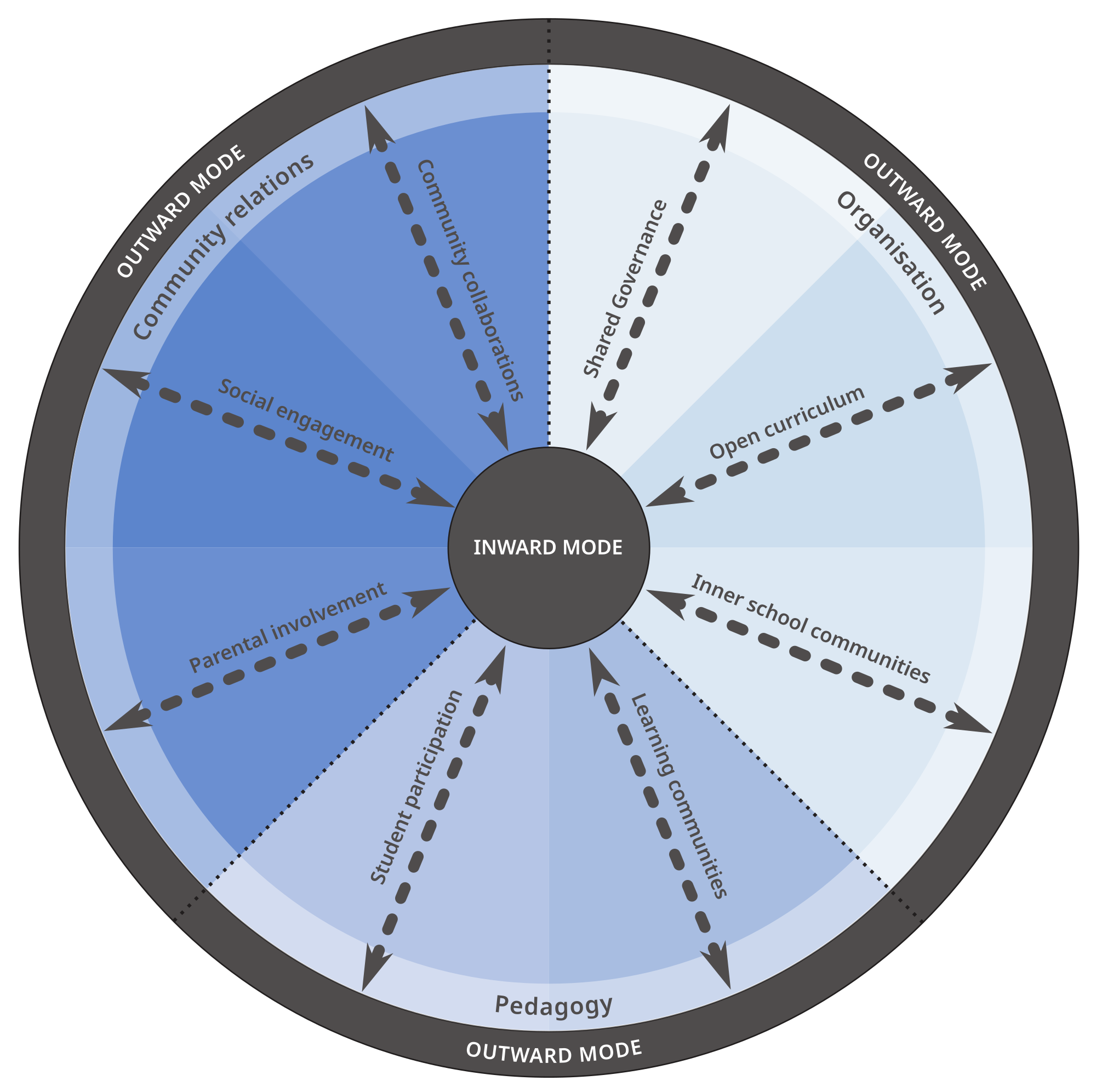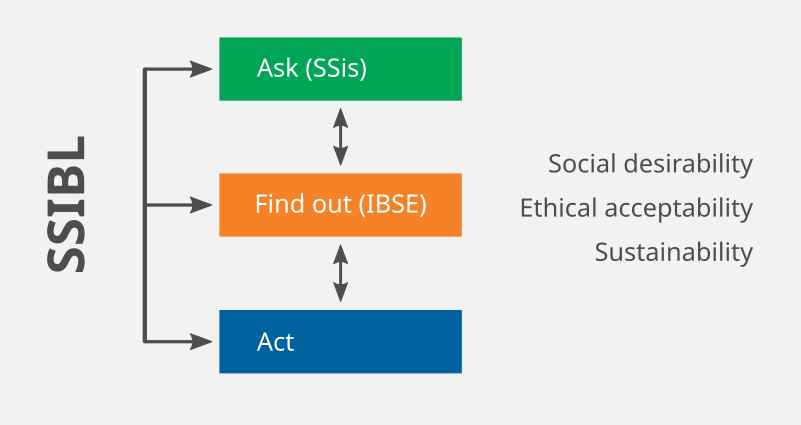

An ecological model of school openness is composed of eight interrelated dimensions: shared governance, ‘open’ curriculum, inner-school communities, learning communities, student participation, social engagement, parental involvement, and community collaborations. These dimensions are organized into three categories, accounting for organizational, pedagogical and communal aspects of school openness. The multidimensional nature of the model presented here provides a more intricate and nuanced account of open schooling that acknowledges the complexities and challenges that the movement towards greater openness yields for school communities.
Sarid, A., Boeve-de Pauw, J., Christodoulou, A., Doms, M., Gericke, N., Goldman, D., Reis, P., Veldkamp, A., Walan, S., & Knippels, M. C. P. J. (2024). Reconceptualizing open schooling: towards a multidimensional model of school openness. Journal of Curriculum Studies, 1-19. https://doi.org/10.1080/00220272.2024.2392592.
Socio-scientific issues are controversial, socially relevant, real-world problems that are based in science but impact on society and often include an ethical or moral component. Vaccination, climate change, healthy lifestyles, environmental pollution, the energy crisis are all clear examples of such issues. Teaching and learning science through these issues offers great opportunities to build science literacy.
In the COSMOS project, we collaborate with primary and secondary schools that want to engage in science education that is open to the society. We do this through:
SSIBL can be operationalised in science education by:
In COSMOS, we aim to engage stakeholders in the different stages of SSIBL.

SSIBL supports students’ conceptual learning of science and their understanding of how to apply this knowledge in everyday life. As a result, they develop decision-making skills and formulate modes of action that empower them to contribute responsibly to and within their communities.